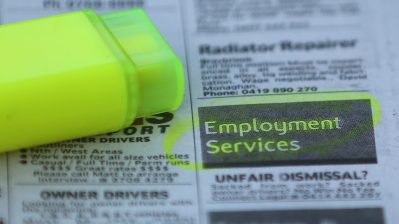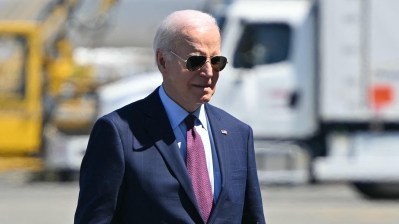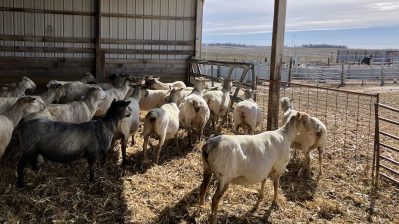
Inflation is “not yet where it needs to be,” Treasury Secretary Yellen says
Inflation is “not yet where it needs to be,” Treasury Secretary Yellen says

As the November election draws nearer, U.S. Treasury Secretary Janet Yellen has been making the case for the Biden economy. Over the weekend, Yellen spoke at the East Valley American Jobs Center in Mesa, Arizona, where she touted the over $1 trillion in spending that Congress authorized with the CHIPS and Science Act, Bipartisan Infrastructure Law and the Inflation Reduction Act, along with the Biden administration’s bet that it will lead to more jobs in the domestic semiconductor chip manufacturing industry.
At the same time, inflation remains elevated and polling shows that it continues to be a chief concern for many Americans. It likely won’t be the only economic issue that looms large this November. In her latest appearance before the House Committee on Ways and Means, Yellen faced a line of questioning from Republicans over the president’s tax policy proposals.
“Marketplace” host Kai Ryssdal sat down with Yellen at the Treasury Department to discuss the state of the economy. The following is an edited transcript of their conversation.
Kai Ryssdal: I want to start with inflation. Just as a quickie, even though technically not your job, I get that. You said a number of months ago, “This is it, we’ve had the soft landing. And given the way inflation has been “bumpy,” to quote Federal Reserve Chair Jay Powell, would you like to do-over on that one?
Janet Yellen: We’ll look, I think the economy is doing well. We have a strong pace of job creation. Growth is running around 3% over the last year, and inflation has come down substantially. It’s not yet where it needs to be. And it has been a slightly bumpy path. But I think the fundamentals are still favorable. A year ago, most forecasters were predicting a recession. We certainly haven’t seen that. We’ve had a big reduction in inflation in the context of an economy that continues to have an exceptionally strong labor market. But look, all that said, many Americans are suffering from a cost of living that is posing challenges to them. And President [Joe] Biden and I understand that rent, food, other prices are high, and Americans feel challenged to make ends meet. So President Biden’s top priority is doing everything he can to get the cost of living down.
Ryssdal: When you see polls, though, that show the president not getting credit for economic growth, and in point of fact, credit largely going to his presumed opponent, do you look at it and say, “What do we have to do to get a break?”
Yellen: Well, I think we have to explain to the American people what we have done to create a bright future for them. And the pandemic was a serious challenge for all Americans. It was a very traumatic episode for all of them. And we have a lot of challenges coming out of that. But President Biden has gotten people back to work very quickly. If you compare the United States with other developed economies, we are doing better, inflation is coming down more, growth is stronger, the job market is doing better. So all countries are facing challenges. And President Biden recognizes that and is addressing it. But importantly, he’s looking toward the future and trying to address the economic challenges that have made Americans feel dissatisfied, many with economic performance. And that is, over decades, the disappearance of good jobs in many parts of the country, seeing economic success too concentrated on the coasts and too lacking throughout much of the country. And President Biden has been focused since Day 1 not only on recovering from the pandemic, but on investing in America in ways that would create good jobs, including for people who don’t have a college education and in parts of the country that have really lacked opportunity. And there has been a trifecta of legislation passed — the Bipartisan Infrastructure Act, the CHIPS and Science Act and the Inflation Reduction Act — which is a monumentally important set of clean energy incentives. And with these investments is coming tremendous opportunities for Americans that will boost their living standards.
Ryssdal: Let’s talk about America and the global economy for a second, China’s specifically, which is the last time you and I spoke, in Beijing. You’re just back a number of weeks ago from another trip there. You said the first time you went, what you had to do was set a floor under the relationship. And we talked about that at the time and now you’re building on that. Are you satisfied that the relationship is stable?
Yellen: I think it’s decidedly improved over the last year. I’ve had three very substantial engagements with my counterpart, Vice Premier He Lifeng. Since we were in China last July, he has visited San Francisco and I just, as you mentioned, completed a trip. I’ve spent a great deal of time with him. And we’ve had very deep and detailed discussions of the issues that we have with one another, what our priorities are. I think we better understand what’s going on in both economies and the concerns that we have. Importantly, we’re also finding ways to work constructively together. And also importantly, our relationship goes beyond just the vice premier and myself. We’ve deepened the relationship throughout our governments. We’ve formed two working groups, an economic working group and a financial working group, that report to both of us. They’ve met four times. And they’re really digging in and discussing issues in ways that are, including around our concerns, one of which is Chinese overcapacity in advanced manufacturing, exchanging papers, analyzing data and really pushing one another to, and we’re working also on joint things, especially when it comes to financial stability that will be good for the entire globe.
Ryssdal: Let me ask you about one of the focuses of that trip, which is, as you mentioned, overcapacity in advanced products, electric vehicles, batteries, all of those things. Is it possible we’re just being outcompeted by the Chinese in those fields?
Yellen: Well, we don’t think the playing field is level. And we think China is massively subsidizing investment in this set of industries that they have targeted as critical to their growth prospects.
Ryssdal: Subsidizing more than we are with our investments in the CHIPS Act and the infrastructure and all that? Because we’re pouring billions — you are pouring billions in.
Yellen: Well, we have targeted a few industries, particularly clean energy, electric vehicles, batteries, renewables, where we’re not trying to dominate the globe and be the only country in the world that supplies these goods. But we do think it’s critical for national security, for the sake of supply chain resilience, and to create good manufacturing jobs where people can get ahead to have a presence in these industries. So yes, we’re very explicitly subsidizing investments in these important strategic areas. And what we don’t want to see is massive Chinese subsidies to firms with huge overcapacity that will just drive our firms out of business. And I can tell you, this is a concern not just of the United States, but of Europe and Japan and of developing countries like India and Mexico.
I think what’s happened in China is that China has a macroeconomic situation where an unusually low fraction of their output, their economy’s output, is devoted to consumer spending. And they have a savings rate that’s the highest, among the highest in the world, around 45%. They used to channel that savings into infrastructure, they really don’t need that much more infrastructure, then into real estate and property development —
Kai: Which has been problematical —
Yellen: And that sector has problems. And what to do with all of those funds? Well, their decision is: “Let’s channel those funds that we don’t need to put into property and infrastructure, into advanced manufacturing.” And that’s what we’re seeing. And so the subsidies are enormous. And China has built enough capacity, for example, in solar panels to supply twice the total global demand. So, you know, we suffered in the late 1990s and early 2000s what’s called a “China shock,” in which really Chinese dumping and overcapacity put many American workers — caused layoffs of many American workers in many parts of the country. And we don’t want to see that happen again.
Ryssdal: I’m going to oversimplify here, but bear with me. Your message to the Chinese, at least as reported publicly, has been, “We want to engage, we do not want to decouple.” You’ve been very clear about that. But you’ve also said, “When it comes to national security, fundamentally all bets are off.” Do you think they hear you when you say that?
Yellen: They do. I think they’re worried that when we say “national security,” that that’s a very broad concept and that we’re using national security to impose restrictions with the idea of harming their economic progress. That’s what they’re worried about. And my job is to explain to them that we are trying to carefully target restrictions, to make sure that they really address national security concerns, and not harming their economy broadly. And to open up a channel by which we will listen to their concerns, if they think that our restrictions are too broad.
Ryssdal: New subject. You gave a speech last Friday in Arizona in which you, by your own words, sort of went where Treasury secretaries don’t usually go. And you started talking about the importance of democracy to the American economy, and democratic institutions to the importance of this economy, among them rule of law, regulation, the right of appeal, all of those things. Do you believe that the rule of law is under threat in this country right now? And what will that mean for this economy?
Yellen: Well, we have seen attacks on institutions, American institutions, independent institutions, like the Federal Reserve, and of course, Jan. 6 was a huge attack on American democracy and something that was frightening. So I think we do have to worry about the state of American democracy. And when we look around the world, we see similar threats in a number of countries and some questioning of whether or not democracies can actually deliver and address the challenges that people face.
Ryssdal: You did what economists do in that speech and you gave some data and some case studies, and it was, I recommend people read it or go listen to it on the stream. I want to know why you decided it was important to give that speech now.
Yellen: Well, President Biden has also talked about the —
Ryssdal: Not the president, Ma’am, you. Right? These are words coming out of your mouth.
Yellen: You know, from my standpoint, I think it’s important for Americans to understand how critical democracy is to economic performance. Of course, democracy is important in and of itself. But I thought what I can add is to elucidate the relevance of democracy to good economic performance and to fight back against the idea that democracies just aren’t an efficient way to help people get ahead. And you sometimes hear this in countries like China that say, “Well, you know, we have an authoritarian government. We decide to do something and we can move quickly. And look how slow it is for, sometimes, democracies to move.” But the research suggests that democracy is actually critical to high living standards, on average, other things equal. Income is 20% higher in democracies, and there are very good reasons. And it’s important for Americans to understand that.
Ryssdal: Did you clear that speech with the White House?
Yellen: I always share remarks I’m going to give with my colleagues in the administration.
Ryssdal: When we were in China, and you were, you know, you got the red carpet treatment, you came down the stairs, and ambassadors and dignitaries were there to welcome you, and I asked you if you were a diplomat now and what you thought of that. And it was an interesting answer. I guess the corollary question now is — it’s not really a question. You’re kind of a politician now.
Yellen: Well, I want to be clear, what I say and do is governed by the Hatch Act. I am not allowed to get into electoral politics, but it is really important for me to explain what President Biden’s economic strategy is and how we see that as helping Americans prosper over time. And there are a lot of different dimensions to that. And one of them, I believe, is to explain why our system and why the policies we’re putting into place will get to, do well for Americans over time and are the appropriate ones to address a lot of long-standing structural issues. Look, you know, we’ve seen in this country over decades that the typical American who does not have a four-year college degree has barely seen any increase in their real or inflation-adjusted wages, really, in 40 or 50 years. And there’s been deindustrialization through many parts of the country that have reduced job opportunities. And what do we see? We see even rising death rates, deaths of despair in parts of the country where jobs have dried up, and Americans feel that that’s an economy that’s not working for them. And President Biden, the Biden-Harris administration, is focused on changing that, and developed a strategy that first succeeded in generating a rapid recovery from the pandemic, establishing solid growth and a strong job market and is now investing for the medium and longer run in people, in strategic industries, in the economy that can create good jobs with middle-class incomes for people, including those who don’t want to get a college degree.
Ryssdal: We were talking on the way over here, Nancy, my producer, and I, and we realized that depending on how this election goes, this might be the last chance we have to sit down with you. So I’m going to ask you the legacy question, and it goes like this: I did an event with Chair Powell in San Francisco six weeks ago. We were at the San Francisco Fed, which you ran for a long time, and in point of fact, we were in the Janet Yellen Conference Center at the San Francisco Fed. And it’s lovely. I recommend you swing by and take a visit. I asked Chair Powell what his legacy was based on, you know, your legacy in the San Francisco Fed being in that conference room, but bigger picture. What’s the first line of your New York Times obit?
Yellen: That I tried to work with President Biden, and in other ways throughout my life, to create economic conditions that make Americans feel that they’re getting ahead and enjoying good lives, that they have opportunity and that they’re able to realize their dreams. And we can do that by, earlier in my career through a monetary policy that is geared toward keeping the economy operating near full employment with stable prices, and in this phase, working with President Biden to put in place fiscal policies that create important job opportunities for people throughout the country, regardless of whether they have a college education, to give them the training and create the opportunities they need to succeed and feel they’re getting ahead and creating good and better lives for their children.
Ryssdal: Madam Secretary, thanks for your time.
Yellen: Thank you very much, Kai.
Ryssdal: Sorry, one more China question. You get all kinds of social media love for your food choices when you go to China. Your chopsticks skills are apparently impeccable. What do you make of that?
Yellen: You know, I think the Chinese are happy to see a person who appreciates Chinese culture and is a regular person that they can identify with.
Ryssdal: Is that — you’re a regular person?
Yellen: Yeah, I think so.
There’s a lot happening in the world. Through it all, Marketplace is here for you.
You rely on Marketplace to break down the world’s events and tell you how it affects you in a fact-based, approachable way. We rely on your financial support to keep making that possible.
Your donation today powers the independent journalism that you rely on. For just $5/month, you can help sustain Marketplace so we can keep reporting on the things that matter to you.

















